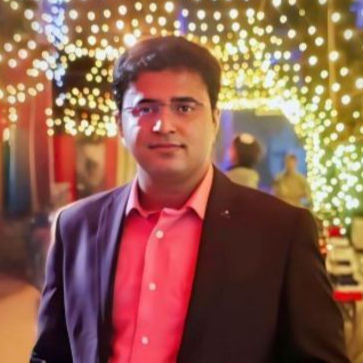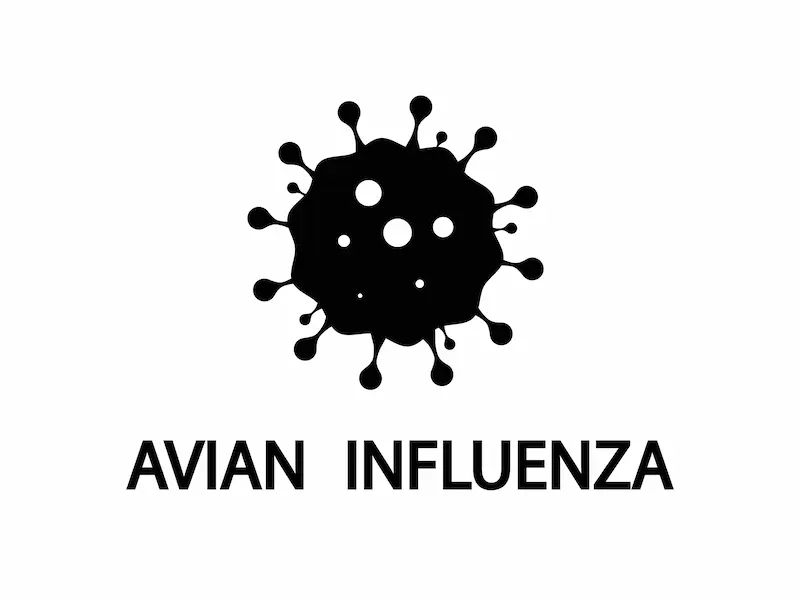Understanding Fatigue: More Than Just Feeling Tired
Fatigue is more than just feeling tired—it’s a signal from your body. Learn the real causes of exhaustion, from lifestyle habits to medical conditions, and discover practical steps to restore your energy and vitality.

Written by Dr. Siri Nallapu
Reviewed by Dr. Dhankecha Mayank Dineshbhai MBBS
Last updated on 13th Jan, 2026

Do you ever feel like you’re running on empty, no matter how much you sleep? You’re not alone. Fatigue is one of the most common complaints doctors hear, but it’s often dismissed as just a byproduct of our busy modern lives. However, persistent exhaustion is your body’s powerful signal that something is out of balance. Understanding fatigue is the first crucial step toward reclaiming your energy and vitality. This isn't just about feeling sleepy; it's a complex state of physical, mental, and emotional depletion that can stem from lifestyle habits, underlying health conditions, or a combination of both. This guide will demystify the different types of exhaustion, explore the root causes, both common and surprising, and provide you with a practical action plan to break the cycle of constant tiredness. Let's dive in and uncover why you're so tired and what you can actually do about it.
What Exactly is Fatigue? Defining the Drain
Often used interchangeably with "tiredness," fatigue is a more profound and persistent state. While tiredness is usually resolved with a good night’s rest, fatigue lingers, impacting your motivation, concentration, and overall quality of life. It’s a pervasive sense of weariness that makes even simple tasks feel daunting.
Medical professionals often categorize fatigue in two ways:
Physical Fatigue: A lack of physical energy where your muscles feel heavy, weak, and unable to perform at their usual capacity. You might find yourself winded by activities that were once easy.
Mental Fatigue (or Brain Fog): This involves difficulties with concentration, memory, and focus. You may feel like your thoughts are moving through molasses, making decision-making and productivity a struggle.
Understanding this distinction is key to identifying the root cause of your low energy and finding the most effective solutions.
Common Causes of Fatigue: The Usual Suspects
For many people, fatigue stems from modifiable lifestyle factors. Pinpointing these can often lead to dramatic improvements.
Lifestyle and Habits
Our daily choices have a massive impact on our energy reserves.
Poor Sleep Quality and Quantity: This is the most obvious culprit. It’s not just about the hours in bed but the quality of those hours. Factors like insomnia, working late shifts, or using electronic devices before bed can disrupt your sleep cycles, preventing you from getting the restorative deep sleep you need.
Nutritional Deficiencies and Diet: You truly are what you eat. A diet high in processed foods, sugars, and simple carbohydrates leads to energy spikes and crashes. Conversely, not eating enough calories or lacking key nutrients like iron, B vitamins, or vitamin D can directly cause persistent tiredness and low energy.
Sedentary Behavior: It seems counterintuitive, but too little activity can make you more tired. Regular exercise improves cardiovascular health, boosts endorphins, and helps regulate sleep patterns. A sedentary lifestyle can lead to muscle weakness and decreased stamina.
Stress and Emotional Wellbeing: Chronic stress keeps your body in a constant "fight-or-flight" mode, flooding it with cortisol. This is mentally and physically draining. Furthermore, mental health conditions like depression and anxiety are intensely linked to fatigue, often creating a debilitating cycle where fatigue worsens mood, and low mood worsens fatigue.
The Role of Hydration
Even mild dehydration can impair bodily functions and lead to feelings of lethargy and difficulty concentrating. Water is essential for nutrient transport, temperature regulation, and cognitive function. If you’re feeling sluggish, a glass of water might be a quicker fix than a cup of coffee.
When Fatigue Signals a Deeper Problem: Medical Causes
When lifestyle changes aren’t enough, it’s critical to consider that fatigue might be a symptom of an underlying medical condition.
Underlying Health Conditions
A wide range of illnesses have fatigue as a primary symptom.
Anemia: A condition where you lack enough healthy red blood cells to carry adequate oxygen to your body's tissues. This oxygen deprivation causes overwhelming tiredness and weakness.
Thyroid Disorders: Both an underactive thyroid (hypothyroidism) and an overactive thyroid (hyperthyroidism) can cause fatigue, though through different mechanisms. Hypothyroidism slows your metabolism, sapping your energy.
Sleep Apnea: A serious disorder where breathing repeatedly stops and starts during sleep. This prevents you from reaching restorative sleep stages, leading to severe daytime fatigue, even if you spent 8 hours in bed.
Chronic Fatigue Syndrome (ME/CFS): This is a complex disorder characterized by extreme fatigue that lasts for at least six months and does not improve with rest. It often worsens with physical or mental activity (a symptom known as post-exertional malaise).
Other Chronic Illnesses: Heart disease, diabetes, autoimmune diseases (like lupus or rheumatoid arthritis), and long COVID are all strongly associated with profound and persistent fatigue.
Medications and Substances
Often overlooked, the medications you take can be a primary source of low energy. Common culprits include certain antidepressants, blood pressure medications, antihistamines, and anxiety drugs. Furthermore, the use of alcohol, nicotine, and recreational drugs can severely disrupt sleep architecture and energy levels.
Breaking the Cycle: A Practical Guide to Managing Fatigue
Reclaiming your energy requires a multi-faceted approach. Think of it as building a foundation of wellness.
Optimizing Your Sleep Hygiene
This goes beyond just going to bed early. It’s about curating habits that promote consistent, uninterrupted sleep.
Maintain a Schedule: Go to bed and wake up at the same time every day, even on weekends.
Create a Ritual: Wind down for 30-60 minutes before bed with calming activities like reading, taking a warm bath, or gentle stretching.
Optimize Your Environment: Ensure your bedroom is cool, dark, and quiet. Invest in a comfortable mattress and pillows.
Ditch the Devices: The blue light from phones, tablets, and TVs suppresses melatonin production. Avoid them for at least an hour before bed.
Fueling Your Body for Energy
Think of food as energy currency.
Prioritize Complex Carbs and Protein: Choose whole grains, legumes, and vegetables over white bread and sugar. Pair them with lean proteins (chicken, fish, tofu) for sustained energy release.
Don't Skip Meals: Especially breakfast. Going long periods without food causes blood sugar to drop, leading to fatigue.
Stay Hydrated: Aim to drink water consistently throughout the day. If you feel thirsty, you’re already dehydrated.
Limit Energy Zappers: Reduce intake of caffeine (especially in the afternoon), sugar, and highly processed foods.
Incorporating Movement into Your Day
You don’t need to run a marathon. Start small.
Just Walk: A daily 20-30 minute brisk walk can dramatically improve energy levels and sleep quality.
Try Yoga or Stretching: These activities reduce muscle tension and stress while gently boosting circulation.
Listen to Your Body: On days of extreme fatigue, rest. On better days, engage in more vigorous activity. The goal is consistent movement, not intensity.
When to See a Doctor About Your Fatigue
While lifestyle changes are powerful, it's crucial to know when to seek professional help. Consult a doctor if your fatigue:
It is severe, persistent, and has lasted for more than two weeks.
Does not improve with adequate rest and lifestyle adjustments.
Is accompanied by other worrying symptoms like unexplained weight loss, fever, night sweats, or shortness of breath.
It is so intense that it prevents you from performing your daily activities or makes it unsafe (e.g., you're too tired to drive).
Your doctor can help determine the cause of constant exhaustion through a detailed history, physical exam, and targeted blood tests to rule out or confirm underlying conditions.
Conclusion
Understanding fatigue is the key to overcoming it. It’s a complex signal from your body asking for attention, whether that means a change in habits, a need for rest, or a call to investigate a deeper health issue. By listening to your body, adopting a holistic approach that addresses sleep, nutrition, movement, and stress, and knowing when to seek professional guidance, you can break the draining cycle of fatigue. Remember, reclaiming your energy is not a sprint but a journey. Start with one or two small changes today, be patient with yourself, and gradually build the habits that will lead you to a more vibrant, energetic life. Take the first step now by evaluating your sleep routine or planning a nutrient-dense meal—your body will thank you for it.
Frequently Asked Questions (FAQs)
Q1. What is the difference between fatigue and simply feeling sleepy?
Sleepiness is a desire to sleep, often resolved by a nap or a good night's rest. Fatigue is a broader, persistent lack of physical and/or mental energy that isn't relieved by sleep. You can feel fatigued without feeling sleepy.
Q2. Can dehydration really cause that much fatigue?
Absolutely. Even mild dehydration (a loss of just 1-2% of body water) can lead to significant reductions in concentration, alertness, and energy levels, and can increase feelings of tiredness.
Q3. What are the best blood tests to check for causes of fatigue?
A doctor will typically start with a Complete Blood Count (CBC) to check for anemia, a Thyroid Panel (TSH) to assess thyroid function, and tests for vitamin levels (like Vitamin D and B12), iron levels (ferritin), and blood sugar. This helps rule out common physiological causes.
Q4. I sleep 8-9 hours but still wake up exhausted. Why?
This is a classic sign of poor sleep quality, not quantity. The most common reason is a sleep disorder like sleep apnea, which disrupts your sleep cycle countless times a night without you being aware of it. Other causes include restless leg syndrome or chronic pain.
Q5. How long does it take to see an improvement in energy levels after making lifestyle changes?
It depends on the change and the individual. Improving hydration can have an effect within days. Stabilizing blood sugar through diet can show improvements in a week or two. Establishing a solid sleep routine and seeing the benefits of consistent exercise may take 3-4 weeks. Be patient and consistent.
Consult a Specialist for Personalised Advice
Consult a Specialist for Personalised Advice

Dr Syed Mateen Pasha
General Physician
2 Years • MBBS
Bengaluru
PRESTIGE SHANTHINIKETAN - SOCIETY CLINIC, Bengaluru

Dr. Anand Ravi
General Physician
2 Years • MBBS
Bengaluru
PRESTIGE SHANTHINIKETAN - SOCIETY CLINIC, Bengaluru

Dr. Vivek D
General Physician
4 Years • MBBS
Bengaluru
PRESTIGE SHANTHINIKETAN - SOCIETY CLINIC, Bengaluru

Dr. Debajyoti Goswami
Obstetrician and Gynaecologist
10 Years • MBBS,D.G.O(DNB),Adv. Infertility Tech.(AIIMS),Fellowship in Diabetes(U.K),Comprehensive Abortion Care(Govt. Of W.B), Certificate in Clinical Embryology(AIIMS, BHUBANESWAR)
Bankura
D.G Clinic, Bankura
(25+ Patients)

Dr. Syed Ismail Ali
General Practitioner
7 Years • MBBS
Hyderabad
Apollo 24|7 Clinic, Hyderabad




